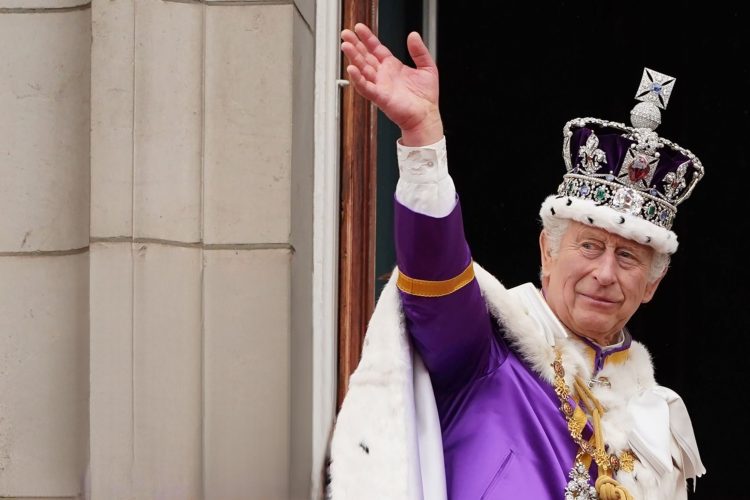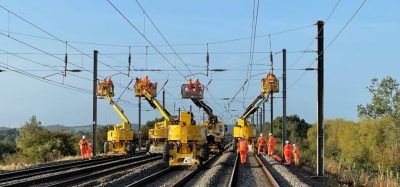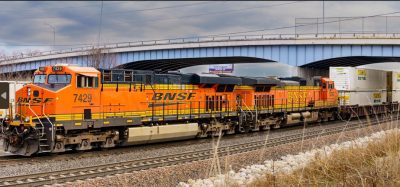King’s Speech Outlines Proposed Railway Reforms and Policies
Posted: 7 November 2023 | Emily Budgen | No comments yet
The King’s Speech this afternoon outlined proposed policies and reforms for the railway industry. Figures in the industry have reacted.


The King’s Speech included outlines of proposed railway reforms and policies. King Charles III delivered his first speech as monarch this afternoon, highlighting the government’s plans and policies for the next year. While the speech contained numerous references and pledges, reinforcing the Conservative government’s previous policies, the King’s speech referenced the railway industry.
Even though the cancellation of HS2 was not mentioned, the King outlined the new direction for investment, in the Network North Project.
“My Government will invest in Network North to deliver faster and more reliable journeys between, and within, the cities and towns of the North and Midlands,” King Charles III said.
He then highlighted how the Government will be “prioritising improving the journeys that people make most often.”
The speech follows the publication of the accompanying briefing. This document highlights how “the draft Rail Reform Bill sets a bold vision for future rail customers – of punctual and reliable services, simpler tickets and a modern and innovative railway that meets the needs of the nation. It helps deliver on the 2019 manifesto commitment by bringing forward the biggest rail reform programme in a generation to create a simpler, more effective rail system.”
Before continuing, ““given the scale and complexity of the changes being made to the sector, it is right that the draft Bill undergoes pre-legislative scrutiny to provide Parliamentarians and experts across industry the opportunity to review and test the legislation in draft. This will allow for a swifter passage through Parliament when the legislation is brought forward.”
Figures in the railway industry have already reacted.
“The King’s Speech gives a green signal to the decisive action we’ve all been waiting for,” Mark Plowright, Director at Virgin Trains Ticketing, commented. “The Rail Reform Bill, if approved, will give GBR the teeth to deliver change and help us all work together to get passengers back onto trains. It’s great news for passengers but also for independent rail retailers.
“We’re working hard to make rail travel more attractive, but we can only work with what we have, which is, at the moment, a broken fares system. A simpler fares structure, where fewer fares are made available across all retail channels, is urgently needed, and will make it easier for consumers to make an informed choice,” Plowright added.
“It’s also reassuring to see the draft Bill recognise the value of the private sector in driving innovation. Independent rail retailers have brought and continue to bring great value to the UK rail network through the creation of barcode tickets and Pay as You Go technology. A level playing field and the right commercial environment will help retailers like us to drive down costs and increase innovation and investment in passenger services,” Plowright concluded.
Some figures in the industry have welcomed the outlined proposed railway policies and reforms in the King’s Speech, noting it has been in the Conservatives’ plans for some time.
“More than five years after the Williams-Shapps plan for rail was first announced (in September 2018), it has at last been confirmed that the government is going to legislate to create a new ‘guiding mind’ for Britain’s rail network in the form of Great British Railways (GBR),” Matt Flynn, director and transport specialist at management consultancy, Vendigital, said.
“Once up and running, GBR will have over-arching responsibility for Britain’s rail network and facilitate an integrated approach to managing operations. Policymakers must focus on the stated objectives of GBR (as set out in the plan for rail) and make sure that draft legislation supports their delivery,” Flynn added.
“GBR will align track and train under a single P&L, bringing efficiency, clear accountability, and ownership to deliver on customer expectations. With industry leaders’ confidence in the market reportedly at its lowest point in five years, the announcement today should act as a trigger; enabling the change that the industry is primed to deliver,” Flynn concluded.
Members from the other side of the House have also commented on the outlined rail plans included in the speech. Shadow Secretary of State for Transport, Louise Haigh, who is also the Labour MP for Sheffield Heeley, posted her reaction on X (formerly Twitter).
“This was the Conservatives’ last chance to reform our broken railways, and they’ve flunked it,” Haigh argued. “A draft bill, with no prospect of becoming law, years after promised reform is a staggering admission of failure.”
“The Conservatives’ answer to the failing status is more of the same,” she added.
In the same X thread, she continued: “Labour is the only party that will reform our railways. We will bring contracts into public ownership as they expire, and deliver a publicly owned and unified rail network, with every decision tested against delivering for the passenger.”
Andy Bagnall, Chief Executive of Rail Partners, also expressed disappointment at the draft-form: “The recommitment to establishing Great British Railways with the publication of a draft bill is a step forward, but it is a missed opportunity to not actually legislate in this Parliament.”
Further updates and industry commentary regarding the railway reforms and policy outlined in the King’s Speech are expected.
More Like This
Related topics
Funding & Finance, Passenger Experience/Satisfaction, Rail Fares/Ticket Pricing, Smart/Contactless Ticketing, Timetabling/Scheduling, Track/Infrastructure Maintenance & Engineering
Related organisations
Related people
Andy Bagnall, King Charles, Louise Haigh, Mark Plowright, Matt Flynn








